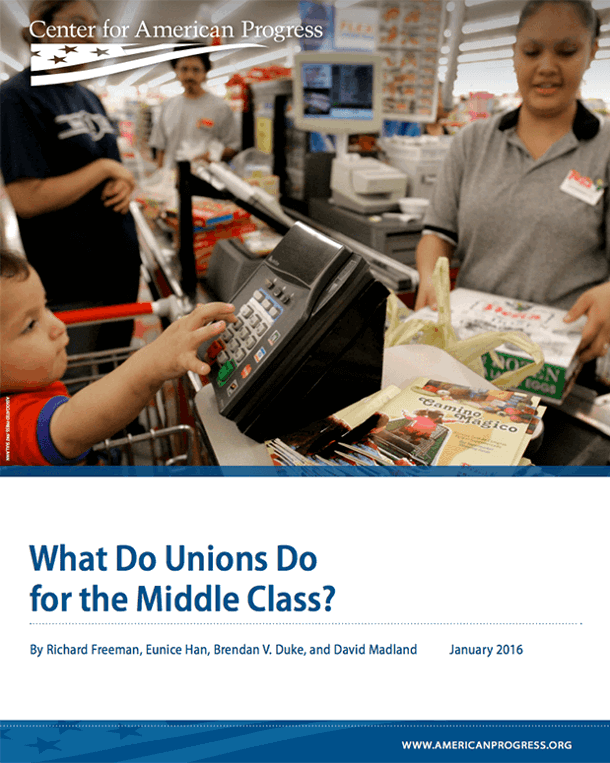
How important are unions to the health of the middle class in the United States? They are vital, according to a new study by the Center for American Progress. In fact, more than one-third of the decline in the middle class during the past 30 years is explained by the decline in union coverage.
“Our main findings are that the decline in union coverage accounts for 35 percent of the falling share of middle-class workers and that the combination of the shrinking share of union workers and the reduction in the union equality effect explains almost half of the decline in middle-class workers,” the authors conclude.
The “union equality effect” refers to the extent that union-induced wage increases spill over from union to nonunion workers and how union advocacy produces economic and social policies that benefit all workers, the authors explain. The study is written by Richard Freeman and Eunice Han of Harvard University, and by Brendan Duke and David Madland of CAP.
The shrinking of the American middle class has been well documented. In its study released in December, the Pew Research Center pointed to a four-decade trend in which the middle class has fallen from 61 percent to 50 percent of the population. With the U.S. economy swinging out of balance, it’s getting hard to get by, let alone get ahead.
The CAP study notes that, despite a 79 percent increase in U.S. labor productivity between 1984 and 2014, “the share of full-time workers who make between 67 percent and 200 percent of median U.S. earnings fell from 68 percent in 1984 to 60 percent in 2014.”
In a companion study back in September 2015, Freeman, Han and the CAP researchers said that unions improve economic mobility not only for workers, but also for children who grow up in areas where union coverage is high.
Despite the positive impact of unions in helping working families gain economic security, we are under a withering attack from rich corporate interests – including in a case argued last week in the Supreme Court, Friedrichs v. California Teachers Association. If the court rules against unions in that case, it will be even more difficult for workers to join together to improve their conditions.
“Making America a middle-class country once again will require policies that raise median earnings and incomes and that bring more workers and households into the middle class,” the study concludes. “Increasing union coverage is important for both, as well as for possibly increasing economic mobility.”
